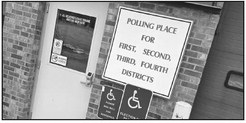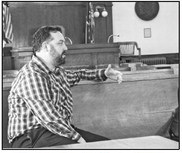State needs to clarify room tax rules
Star News
Editorials
The State of Wisconsin needs to do a better job in spelling out how room tax dollars may be spent to avoid either funds sitting unused in reserve accounts or allegations that they are being misspent.
Room taxes are a special sales tax charged against those who rent lodging in communities around the state. The law allows for at least 70% of the tax dollars collected to be used for tourism development efforts. Municipalities can use the remaining money for whatever other purpose local elected officials deem is needed.
Since 2016, decisions on how the room tax money is allocated has been in the hands of an independent commission made up of community members appointed by the mayor and approved by the council. The commission includes a motel owner and a representative from the city council. Prior to 2016, the city council had sole discretion over how the money was spent. According to the Wisconsin Policy Forum, Wisconsin room taxes totaled $116.8 million in 2018, a 4.4% increase from the previous year and a 140% increase since 2000. There are room taxes in place in 291 communities around the state. In addition to traditional motels and hotels there is a growing revenue from AirBNB and other similar residential rentals. With that much money in play, it is necessary to have accountability that the money is being used properly.
The current law is vague, leading to disparities in how room tax money is being spent from one community to another. At last week’s Medford City Council WI Statute 66.0615: “Tourism promotion and tourism development” means any of the following that are signifi cantly used by transient tourists and reasonably likely to generate paid overnight stays at more than one establishment on which a tax under sub. (1m) (a) may be imposed, that are owned by different persons and located within a municipality in which a tax under this section is in effect; or, if the municipality has only one such establishment, reasonably likely to generate paid overnight stays in that establishment: 1) Marketing projects, including advertising media buys, creation and distribution of printed or electronic promotional tourist materials, or efforts to recruit conventions, sporting events, or motorcoach groups. 2) Transient tourist informational services. 3) Tangible municipal development, including a convention center.
Committee of the Whole meeting, alderman Greg Knight spent half an hour going through, in exhaustive detail, the ways in which he disagreed with how city room tax dollars were being spent. His concerns dated to the council’s decision during last year’s budget process to allow more of the room tax to be used for tourism expenses rather than be retained by the city. A positive result of Knight’s complaint is that the city ordinance was changed to match state law rather than limit how much room tax money could be used to promote tourism.
In voicing his concerns, Knight applied a narrow interpretation of the state law about how the money can be spent, wanting it solely for promotional and advertising expenses.
Medford has historically taken a broader interpretation of the room tax law by helping groups start new community events or by assisting with expenses for the city’s 4th of July celebration, the Park Fest celebration or helping to purchase holiday decorations or make park improvements seeing all of these as tourism development efforts. In every case, commission members reviewed the funding application in light of their interpretation of the statutory and local guidelines. The commission scrutinizes each application and has not been shy in rejecting those which members felt did not meet the objectives.
While local councils, boards and commissions should have as much flexibility as possible in making decisions that impact their communities, overly-vague wording in state rules results in disparate interpretations and questions about the law’s intent. The state legislature must work with the tourism industry, including representatives from rural areas, to develop more consistent guidelines which allow communities to balance flexibility and accountability.




